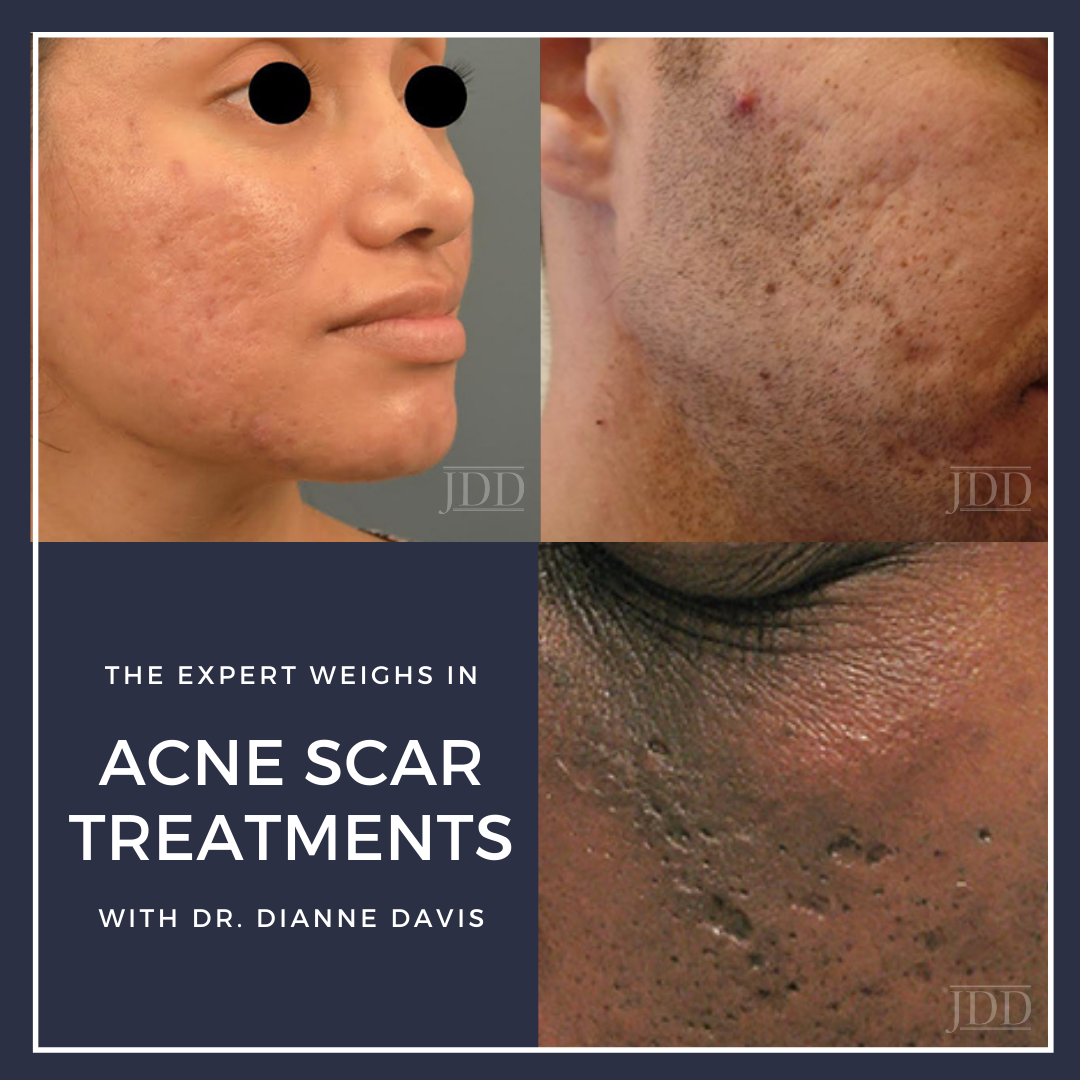New Beauty recently published an article on the latest in acne scar treatments. What are the newest developments in treating acne scars, and what should dermatologists keep in mind when treating patients with skin of color?
For an expert opinion on the current and future landscape of acne scar treatments, I contacted dermatologist DiAnne Davis, MD, FAAD, a cosmetic dermatologist in Dallas.
What are the latest developments in treating acne scars, and what’s on the horizon?
Some of the latest developments in treating acne scars use several different treatment approaches at the same time for a synergistic effect to improve the acne scars. Whether it be subcision plus fractional non-ablative or fractional ablative laser therapy, subcision combined with biostimulating injectables, or radiofrequency and microneedling with PRP, there are many different ways to approach acne scars. By combining several treatments into one you can definitely make a powerful impact on improving the acne scars.
What should dermatologists keep in mind when treating acne scars in patients with skin of color?
All patients with skin of color are not the same, especially when it comes to laser therapy. I have definitely learned that over the last couple of years of practicing since I finished my cosmetic fellowship. If you have any concerns of how the patient will respond, I always recommend doing test spots either behind their ears or in another hidden location to see how their skin will respond.
In terms of the acne scars that I see skin of color patients concerned with, the most common would be post-inflammatory hyperpigmentation. Safer options will always include chemical peels, microneedling, and/or radiofrequency microneedling to address concerns regarding pigmentary alterations.
What other treatments are effective for hyperpigmentation resulting from acne scars?
Topicals are also another great option, especially those containing pigment corrector, such as tranexamic acid, kojic acid, mandelic acid or malic acid.
What treatments are effective for atrophic scars?
Atrophic scars can definitely be more challenging to treat. Depending on the size of the atrophic scars I may recommend a small 1.5 mm or 2 mm punch excision followed by one small stitch to approximate the skin edges in order to remove the scar entirely.
I also love combining Pico- and/or Nano-second fractional non-ablative laser technology to really help with the remodeling of the dermis to help improve the atrophic scars.
Are there conditions that make treatment most effective, such as treating acne scars when they first appear?
If I see a patient that is coming to me for acne and I see acne scars I want to first address their acne but also discuss ways that we can start treating their acne scars as soon as possible. As a dermatologist, I think we always have to keep in mind the effects that acne scars can have on our patients’ quality of life and we should not turn a blind eye to what the patient may not be saying during our medical encounters.
Sometimes my treatments may come in the form of an oral medication such as isotretinoin. Other times I may recommend topical prescriptions while also combining microneedling treatments.
How should dermatologists counsel their acne patients on ways to avoid scarring?
Dermatologists should share the following messages with their acne patients:
-
- Do not pick at your acne scars.
- Sunscreen always needs to be incorporated into your treatment regimen, especially to help minimize further exacerbations when it comes to post inflammatory hyperpigmentation.
- Be consistent with your skin care regimen initiated by your board-certified dermatologist.
- Once your acne has cleared, keep on your regimen to minimize any acne “sneaking back up.” (I find that a lot of times, once the acne clears, patients will start to not adhere to the prescribed treatment regimen as consistently as they previously did).
Images used with permission from the Journal of Drugs in Dermatology.
Did you enjoy this Patient Buzz Expert Commentary? You can find more here.

